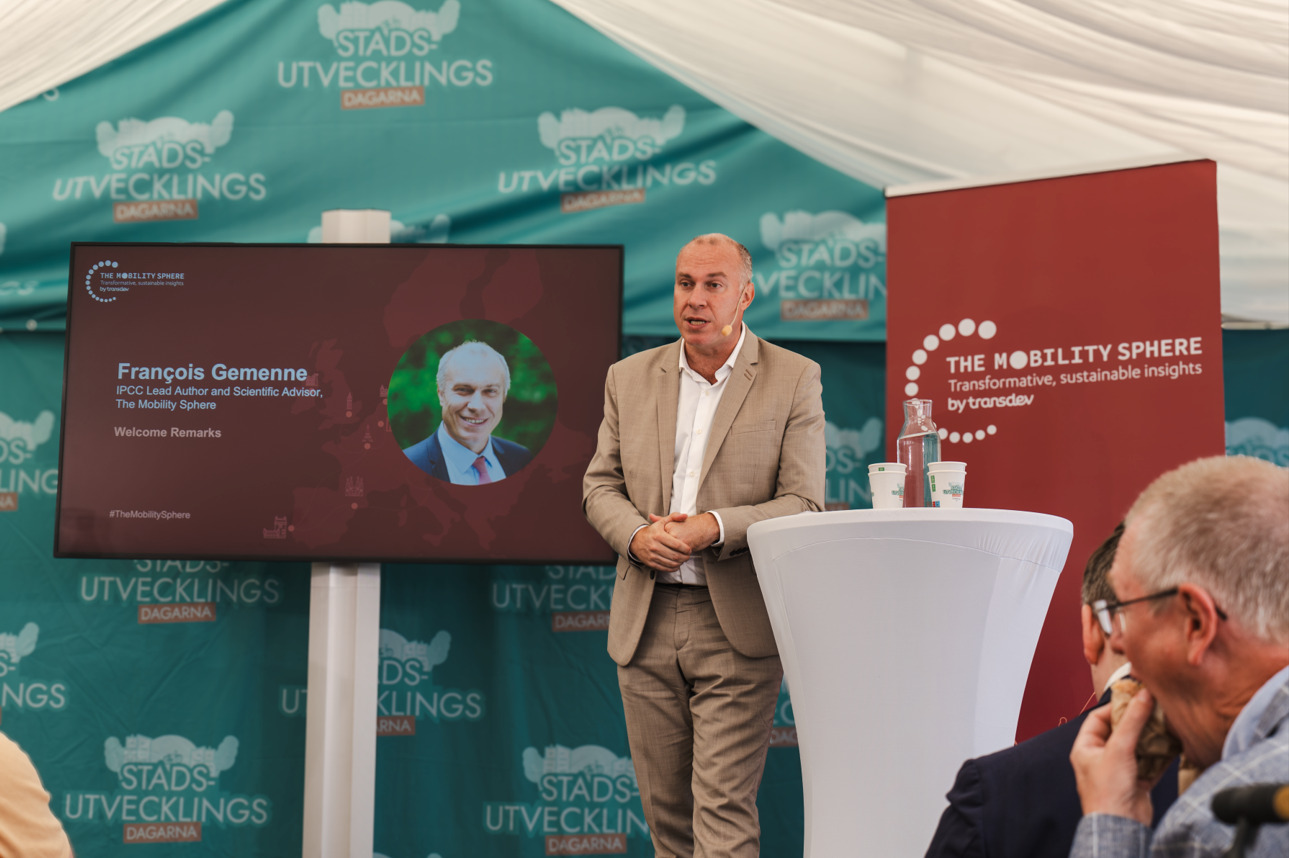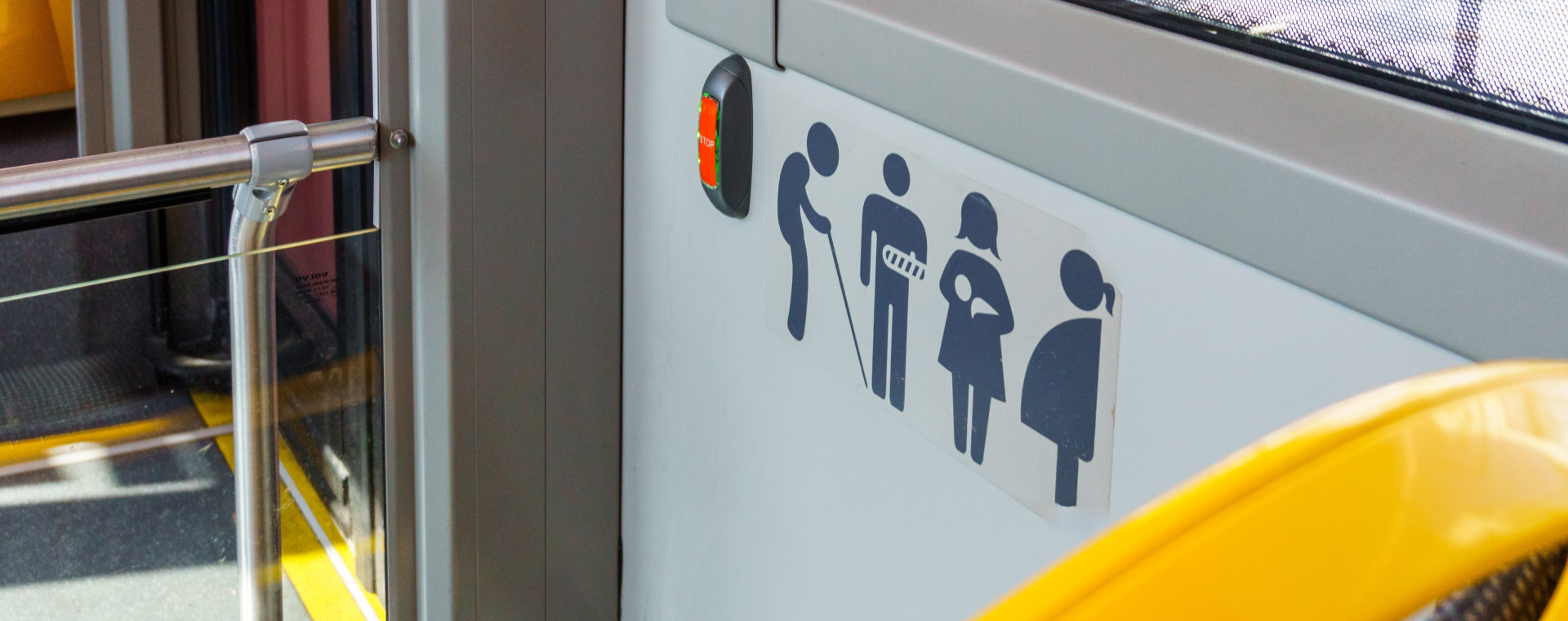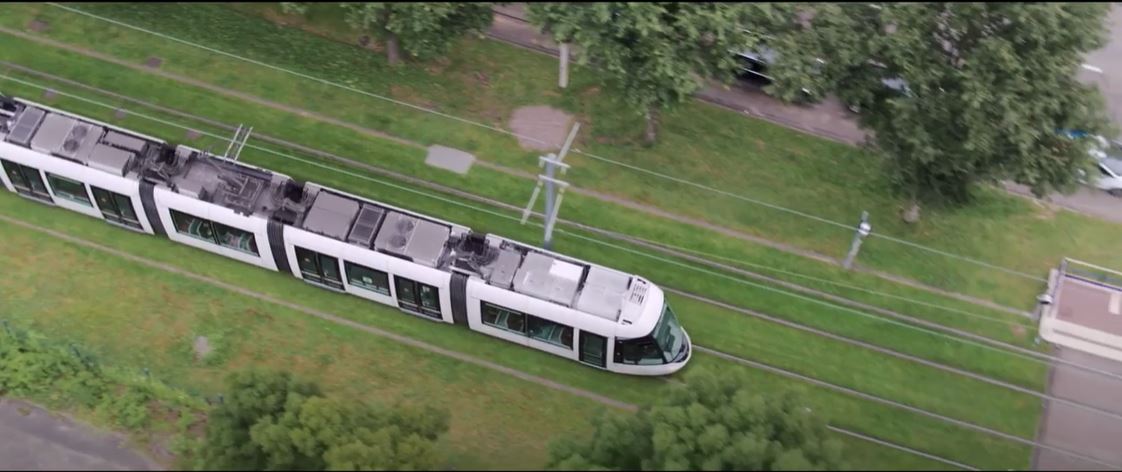Interview
Circularity: a crucial part of the 21st century economy
-
François Gemenne
IPCC co-author and The Mobility Sphere scientific advisor

An interview with The Mobility Sphere’s scientific advisor, Francois Gemenne, about the future of circularity.
The Mobility Times: How would you define the circular economy, and why has this idea become impactful now, including for mobility?
François Gemenne: We're coming from an economy where we were basically extracting things, producing them and then throwing them away. And very often when we talk about circularity, we talk about production of objects, production of stuff. I think it's really important to also conceptualize circularity in the field of transportation. What does it mean, basically, for transport? And how can we redefine the public transportation system with a view to circularity?
The Mobility Times: Do you have any examples or ideas of how circular transportation could work or should work?
François Gemenne: The best circular example is a bus that will carry different passengers and that will tour a common itinerary. The question is how can we replicate the bus model, for example, for other means of transportation and how can we combine them with buses?
The Mobility Times: In the broader context of decarbonizing the economy, how significant do you believe circularity is now, and how much will it grow in the future?
François Gemenne: I think circularity is a key element to decarbonize the economy and indeed our possibility to reuse, to recycle not just materials but also the different uses that we have of objects will be a crucial part of the economy of the 21st century. The 21st century economy will be not just a lower carbon economy but also a more circular economy and both go hand in hand.
The Mobility Times: You once described the future economy as being "léger," the light economy. Is that concept inherently tied to circularity? Should our economy be more moderate?
François Gemenne: It has to be light, sober, moderate. A much lighter economy indeed and circularity is of course part of that.
The Mobility Times: You've worked extensively on carbon footprint pricing. Can such mechanisms encourage the circular economy?
François Gemenne: Absolutely. I think one of the key problems at the moment when it comes to the emerging circular economy remains the issue of pricing. Sometimes it will cost you more to reuse something or to recycle it rather than throw it away, and I think that we need to figure that out and we need to put in place the right legislative and tax framework that would actually encourage our capacity to reuse, to recycle rather than throw away.
The Mobility Times: Do you think about circularity in your own life or at home?
François Gemenne: I do, not just for the products that I buy but also how I organize my daily life and I think that this is really a shift that is happening for a lot of people, as well as for a lot of companies. We are slowly shifting away from a linear economy towards a circular economy and I think that's a positive thing.
The Mobility Times: And are you optimistic about this transition?
François Gemenne: I'm quite optimistic because I see many advantages in the circular economy. It could generate a lot of advantages, not just for the daily lives of citizens but also profits for companies.
-
 Interview
Design
Interview
Design
How can individuals improve their urban environment?
Zeina Nazer, Co-founder of Cities Forum and vice president of ITS UK Road User Charging Forum
-
 Interview
Decarbonization
Interview
Decarbonization
How can we catalyze the transition towards carbon-neutral transportation?
Katarina Cséfalvayová, Co-founder and director of the Institute for Central Europe
-
 Interview
Social Cohesion
Interview
Social Cohesion
How can we tackle mobility poverty?
Sébastien Bailleul, Director of Institutional and European Relations at Wimoov
-
 Interview
Access
Interview
Access
Will tomorrow’s mobility be inclusive and fair?
Dominique Riquet, Member of the European Parliament
-
 Interview
Common Good
Interview
Common Good
What continuum exists between social mobility and geographical mobility?
In this interview, Margaux Nebout tells us about the link between social mobility and geographical mobility.

